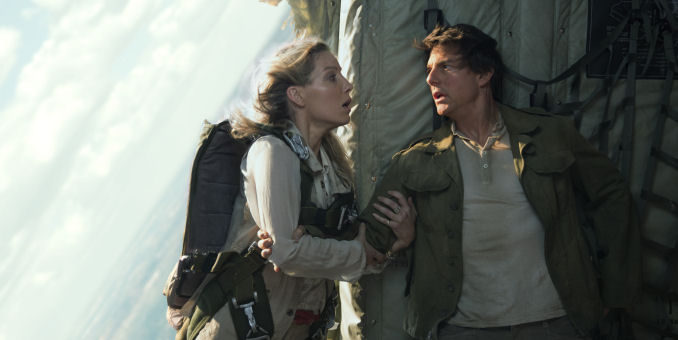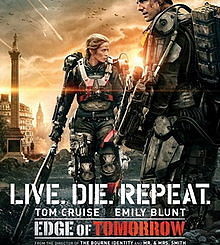In the wake of last weekend’s poor box office performance of Universal’s The Mummy, there has been much finger pointing. Some blamed the film’s script, which moved the horror story into a more action-oriented direction. Others blamed the idea of using the film as a cornerstone for the studio’s plan to build a shared cinematic universe based off of their long history of monster films. One of the biggest problems undoubtedly in getting butts in seats was probably the film’s abysmal showing with critics.
But a new report is laying the blame on the film’s failure as a “textbook case of a movie star run amok.”
According to Variety, Mummy star Tom Cruise was very much hands on during the film’s production. Perhaps too hands on.
Universal, according to sources familiar with the matter, contractually guaranteed Cruise control of most aspects of the project, from script approval to post-production decisions. He also had a great deal of input on the film’s marketing and release strategy.
While it is not unusual for an actor who carries some heft at the box office the way that Cruise does to have some say in various aspects of a film’s production, it sounds as id Cruise may have run roughshod over things right from the start.
The actor personally commissioned two other writers along with (his Mission Impossible: Ghost Protocol collaborator Christopher) McQuarrie to crank out a new script. Two of the film’s three credited screenwriters, McQuarrie and Dylan Kussman, an actor-writer who played small roles in “The Mummy” and “Jack Reacher,” were close allies of Cruise’s. The script envisioned Nick Morton as an earnest Tom Cruise archetype, who is laughably described as a “young man” at one point.
His writers beefed up his part. In the original script, Morton and the Mummy (played by Sofia Boutella) had nearly equal screen time. The writers also added a twist that saw Cruise’s character become possessed, to give him more of a dramatic arc. Even though Universal executives weren’t thrilled about the story — which feels disjointed and includes Russell Crowe as Dr. Jekyll — they went along with Cruise’s vision.
Cruise’s take charge attitude also reportedly carried over onto the set.
[T]he crew fell in line too, behind Cruise as the boss. “This is very much a film of two halves: before Tom and after Tom,” said Frank Walsh, the supervising art director, at a London screening of “The Mummy” this week. “I have heard the stories about how he drives everything and pushes and pushes, but it was amazing to work with him. The guy is a great filmmaker and knows his craft. He will walk onto a set and tell the director what to do, say ‘that’s not the right lens,’ ask about the sets, and as long as you don’t fluff what you’re saying to him … he’s easy to work for.”
Once the film was done, Cruise brought in his longtime editor Andrew Mondshein to piece together the final picture. (The film’s credits also list Gina and Paul Hirsch as editors.) He spent time in the editing suite overseeing the cutting, which everybody agreed wasn’t working. On the lot, there were differences of opinions about whether Cruise’s directions were improving a picture that had been troubled from its inception or whether they were turning a horror film into a Cruise infomercial.
Alex Kurtzman is the names director for The Mummy. Primarily a writer and producer, Kurtzman has been pretty much the driving creative force at Universal behind their Dark Universe franchise. That was probably the big reason why with only one other directorial credit on his resume – the 2012 comedy People Like Us which cost a small fraction of The Mummy‘s reported $150 million budget – he got the job. But did his inexperience with handling such a large scale production open the door for Cruise? Was the actor just over-excitedly trying to help out and get the best out of the cast and crew, as a statement from Universal suggests? I find that hard to believe, given that he brought in writers who beefed up his own part in the script at the expense of the titular monster. If the film’s ending was rewritten to where stands in the final product, it really looks as if Cruise was trying to hijack the franchise for himself.
This report also raises another question. Universal has been very aggressive when it has come to lining up big name stars for their Dark Universe films. In addition to Cruise and Crowe, the studio has recruited Javier Bardem for 2019’s Bride Of Frankenstein and Johnny Depp foe their unscheduled Invisible Man film. Did the studio relinquish the same kind of creative control in order to procure their services? I would think it is doubtful in Bardem’s case, but Depp might be able to command such a deal. Is there some reconsideration going on in the executive suites at the studio? Just another question that needs to be answered while the studio tries to figure out how it will proceed with its plans for Dark Universe.





